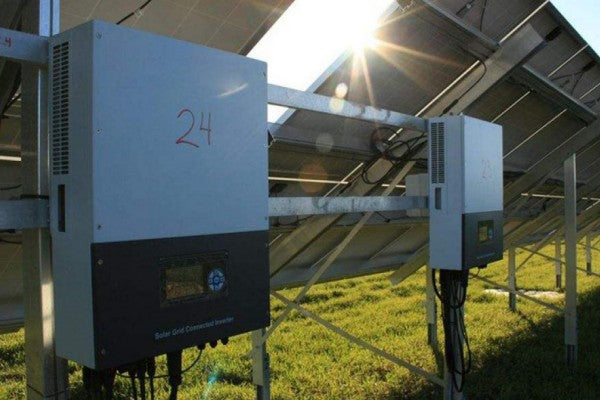
In today's world, where sustainability and energy independence are gaining increasing importance, harnessing solar energy has become a popular choice for many homeowners and businesses. To convert the captured solar energy into usable power, inverters play a crucial role. When it comes to selecting the right inverter, two main options stand out: Off-Grid Inverters and Hybrid Inverters. In this blog post, we will explore the differences between these two types of inverters and help you make an informed decision about the perfect power solution for your solar energy needs.
I. Understanding Off-Grid Inverters
Off-grid inverters are the backbone of standalone power systems. They allow you to generate and store your own electricity independently of the utility grid. These inverters convert the direct current (DC) power stored in batteries to alternating current (AC) power, which powers your household appliances.
One of the key features of off-grid inverters is their ability to charge batteries using solar panels or other renewable energy sources. This feature ensures that you have a constant supply of electricity even when the sun isn't shining. Additionally, off-grid inverters have a significant load capacity, making them suitable for powering multiple appliances simultaneously.
While off-grid inverters provide the advantage of energy independence, it's important to consider their limitations. These inverters have a limited power capacity, so it's crucial to calculate your energy needs accurately to avoid overload. Moreover, off-grid systems require sufficient battery storage to ensure uninterrupted power supply during periods of low energy production.
II. Exploring Hybrid Inverters
Hybrid inverters offer a versatile and smart energy management solution that combines the best of both off-grid and grid-tied inverters. These inverters allow you to connect your solar power system to the utility grid while also providing battery storage capabilities.
One of the standout features of hybrid inverters is their ability to optimize power usage. They intelligently decide when to draw power from solar panels, batteries, or the grid to maximize self-consumption and minimize reliance on the utility grid. This functionality leads to reduced electricity costs and increased energy efficiency.
Hybrid inverters offer a seamless transition between solar power, battery power, and grid power. During times of high energy production, excess electricity can be stored in the batteries for later use or even sold back to the utility grid, depending on the local regulations. However, it's important to note that hybrid inverters require a grid connection to operate at their full potential.
III. Choosing the Right Inverter for Your Needs
When deciding between an off-grid inverter and a hybrid inverter, several factors should be taken into consideration to ensure the perfect power solution for your specific needs.
Firstly, evaluate your power requirements. Calculate your energy needs accurately, considering both present and future demands. This assessment will help determine the suitable inverter capacity, whether you choose an off-grid or hybrid inverter.
Secondly, assess your budget and long-term investment plans. Hybrid inverters often come with higher initial costs due to their advanced functionalities. However, they offer the advantage of scalability, allowing you to expand your system as your energy needs grow.
Lastly, consider your location and the availability of the utility grid. If you reside in a remote area with an unreliable grid or if you seek complete energy independence, an off-grid inverter might be the ideal choice. On the other hand, if you have a stable grid connection and wish to maximize self-consumption while reducing costs, a hybrid inverter would be more suitable.
Conclusion
In conclusion, choosing the right inverter is essential for a reliable and efficient solar power system. Off-grid inverters provide energy independence and are ideal for remote locations, whereas hybrid inverters offer the benefits of grid connectivity and intelligent power management. By carefully considering your power requirements, budget, and location, you can make an informed decision that aligns with your specific needs.
Remember, when purchasing solar energy-related products, it's always recommended to consult professionals or experts who can provide personalized advice based on your unique circumstances. With the right inverter, you can harness the power of the sun and embark on a sustainable energy journey that benefits both the environment and your wallet.


0 Kommentare